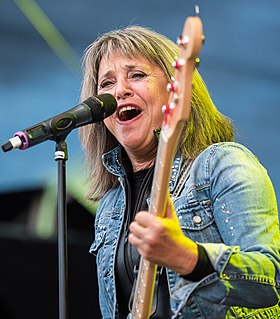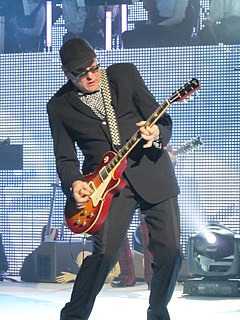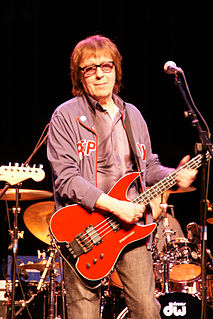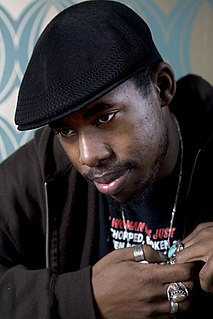A Quote by Corinne Bailey Rae
I love the sound of a Fender Rhodes or James Jamerson-style bass lines that are their own melody, and live drums and Moogs.
Related Quotes
Instead of thinking in terms of chords, I think of voice-leading; that is, melody line and bass line, and where the bass line goes. If you do that, you'll have the right chord. [These voices] will give you some alternatives, and you can play those different alternatives to hear which one suits your ear. Keep the bass line moving so you don't stay in one spot: if you have an interesting bass line and you roll it against the melody, the chords are going to come out right.
Melodies can be good depending on the context. You can have a simple melody, and if the harmony behind it is interesting, it can make a very simple melody really different. You can also have a complex melody. The more complex it is, the harder it is to sing, and then sometimes it can sound contrived. You could write a melody that would be fine on a saxophone but if you give it to a singer, it can sound raunchy.
The piano is an instrument that can easily sound overly thick, and I love to think that I can work with textures - particularly the inner textures inside the melody or the bass line. There is an analogy there with painting; I love paintings where you see colour underneath the colour and, underneath that, more texture and shape.
I know I have a very unusual style of playing, where other more recognized and technically proficient players might look at me and wonder what the heck I'm doing. The purpose of my learning to play the way I do was more to accompany my singing. I figured out a style where I'm mentally playing the drums over a simple melody.



































